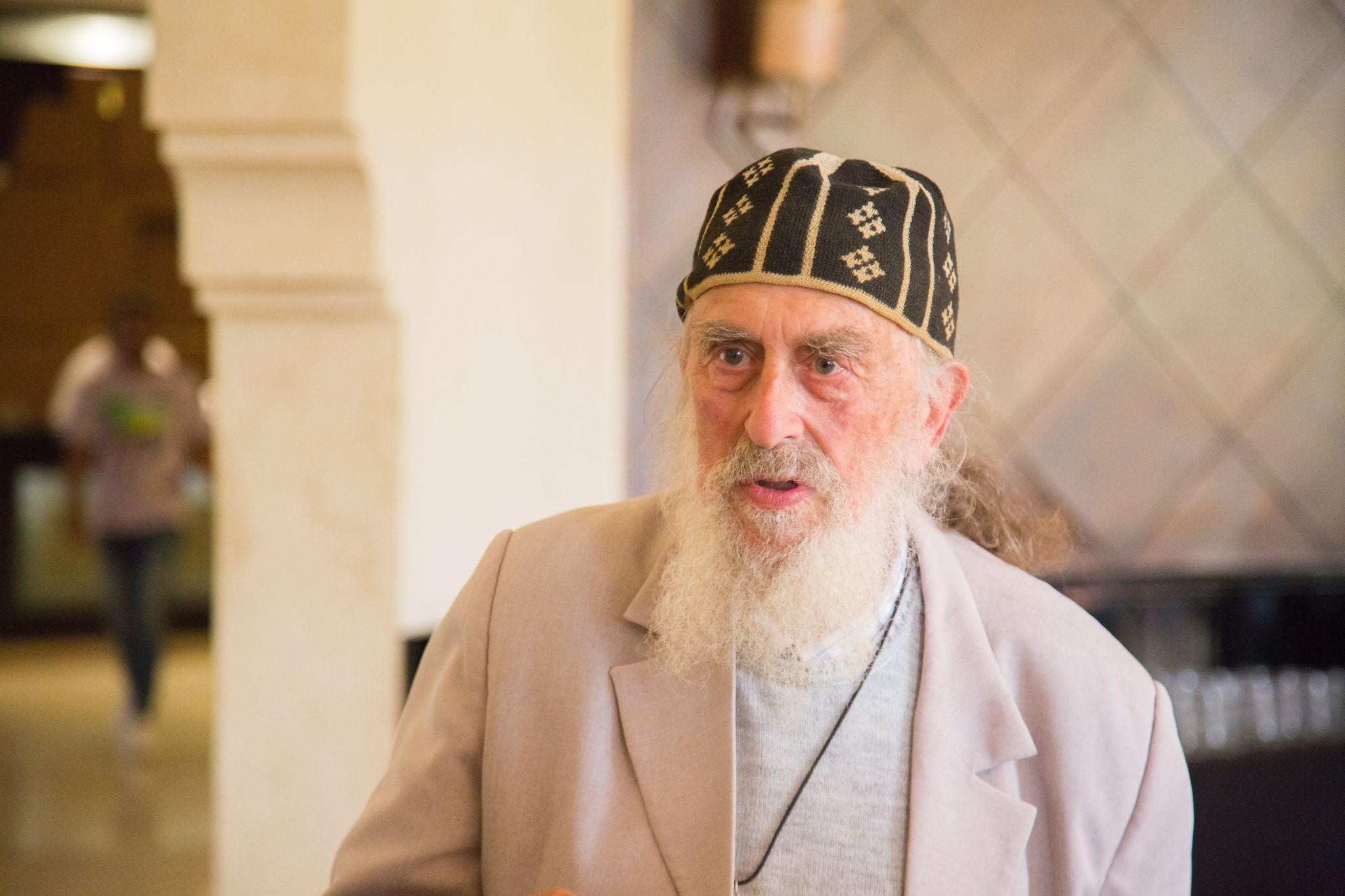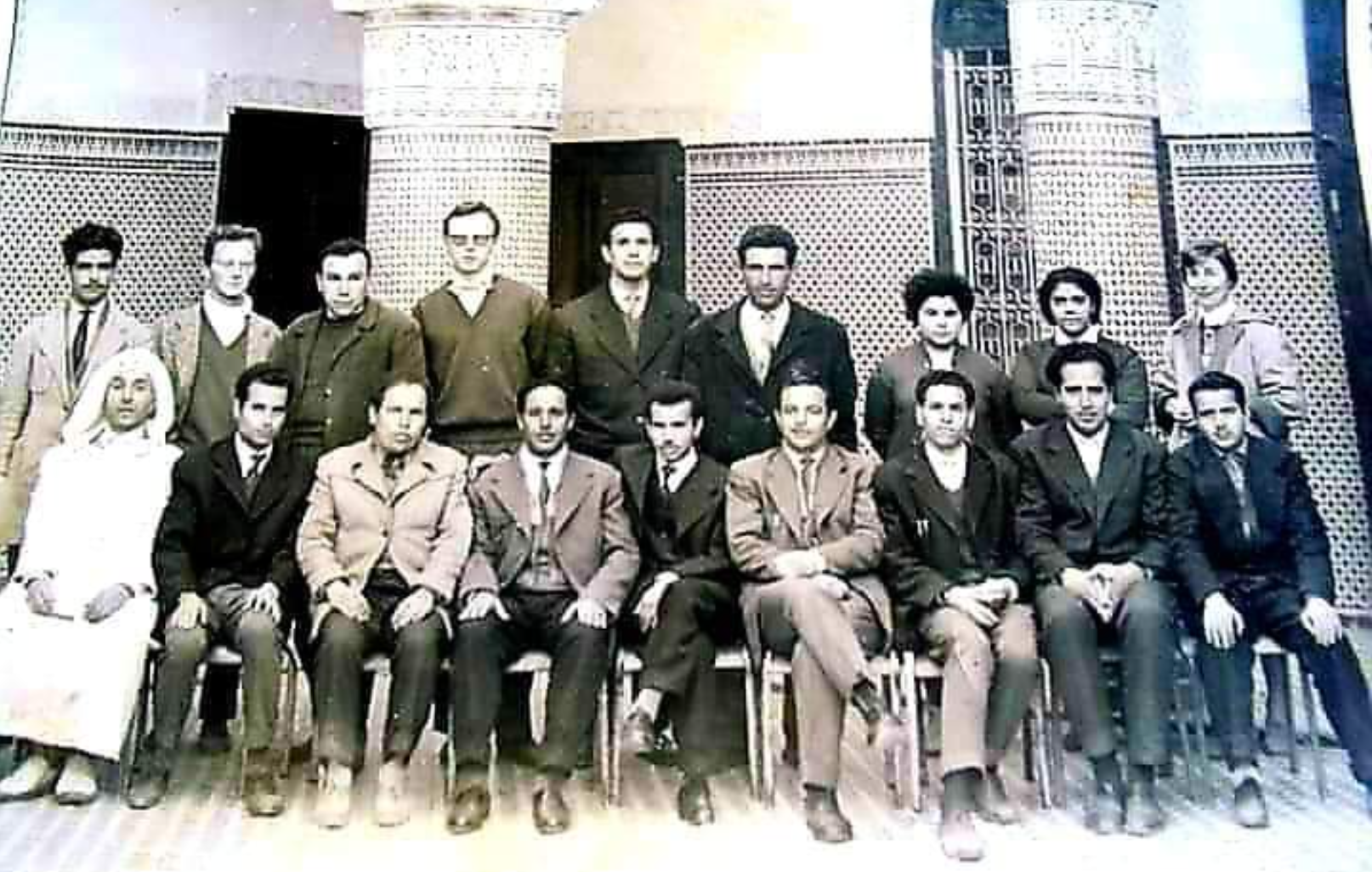World Interfaith Harmony Week
A School to be Remembered
El Menzel, Morocco
“My name is Mohammed Moubachir, and I was born in 1939. I worked as a French Language teacher in Ryad school, a primary school based in El Menzel, Sefrou Province, before I retired in 2002. I’m currently 83 years old, and I’m always thrilled to share my story of 42 years of teaching at a school that was known to be a beacon of diversity and inclusion.” -Mohammed Moubachir
This is how Si Mohammed chose to introduce himself to me. Because I had heard a lot about the Ryad school, I have always been intrigued by its history. When I first mentioned the school, Si Mohammed eagerly replied in French “J’ai eu l’honneur de travailler à l’école Ryad” (in English: “I was honored to work at the Ryad School.”) At that moment, I could easily tell, from the gleam in his eyes, that the school was not a mere workplace for him.

Photo of Si Mohammed Moubacher on the left and his colleagues from different countries (1960).
According to Si Mohammed, the school is considered one of the oldest educational institutions in the Fes region. It was founded in 1923 during the French protectorate period in Morocco. So back then, the Moroccan educational system was closely linked to the French administration.
The school was originally named El Menzel, but after a few years, it was changed to Ryad school in reference to the area on which it was built, which comprised orchards and fruit trees. In addition to core classes, the school offered courses in agriculture, carpentry, mechanics, and animal husbandry. Si Mohammed had always dreamed of becoming a teacher. In 1949, he took his first classes at the Ryad school, where he studied for four years. Later in life, he would teach at this same school for over four decades, hence his attachment to it. “Toraval, of French origin, was the first school’s affairs director, and the first student to enroll was Mohamed Belkaid in 1925. I could even recall all my French teachers’ names,” Si Mohammed added.
Our discussion led us to reflect on the school’s cultural and social characteristics. “Actually, the school was very special since it was the first school to be founded by the Benyazgha tribe, so it hosted students from different Amazigh and Arab villages, as well as teachers of various nationalities and faiths, including Muslim, Jewish, and Christian people. The school was considered to be an intercultural dialogue hub in the region because of the diversity of its staff members and teachers.”
Although the school had adopted a French educational system, the teachers came from different countries, mainly France, Italy, Spain, and Morocco. “I worked alongside Jewish colleagues of French origins and we used the French language to communicate with each other. The work culture was marked by mutual respect and solidarity.”
I asked Si Moubachir if he had witnessed some cultural clashes among staff members, to which he replied, “During my career, I never witnessed any cultural clash between me and my colleagues. We lived side by side working for the same goal, which was a high quality education. I remember friends and colleagues, they were Christians and Jewish people, and I can remember Madam Bouttboul, who was a Jewish teacher, who came from Sefrou; she was a nice and responsible woman. Despite the religious and cultural differences, we were all strongly connected to the same objective.”

During the interview, Si Moubacher sits with his former student, Si Lhoucine Chadli. Photo:Mohammed Chadli/HAF
While conversing with Si Mohammed, my father joined us. He was one of the students that Si Mohammed had taught many years ago. The latter mentioned, in fact, that he had taught 84 classes of students, some of whom became teachers too, just like my father, and others exercise different professions. He feels a strong sense of pride that he could leave a great legacy of a generation of students who were fully aware of the shared values that the school embodied.
Si Moubachir concluded our conversation with a touching note: “the students are like flowers; the more you take care of them, the more pleasant the sight and fragrance they give you,” alluding to the character of the children he taught.
—
Mohammed Chadli is a HAF field coordinator for the USAID Dakira program based in the Fes region.
This article is part of a series of interviews that celebrates Interfaith Harmony Week (February 1-7, 2023) and have been facilitated by the USAID Dakira program, which is implemented by the High Atlas Foundation and its partners and aims to strengthen inter-religious and inter-ethnic solidarity through community efforts that preserve cultural heritage in Morocco.
The article was completed with the support of the United States Agency for International Development (USAID), and the High Atlas Foundation is solely responsible for its content, which does not necessarily reflect the views of USAID or the Government of the United States of America.






